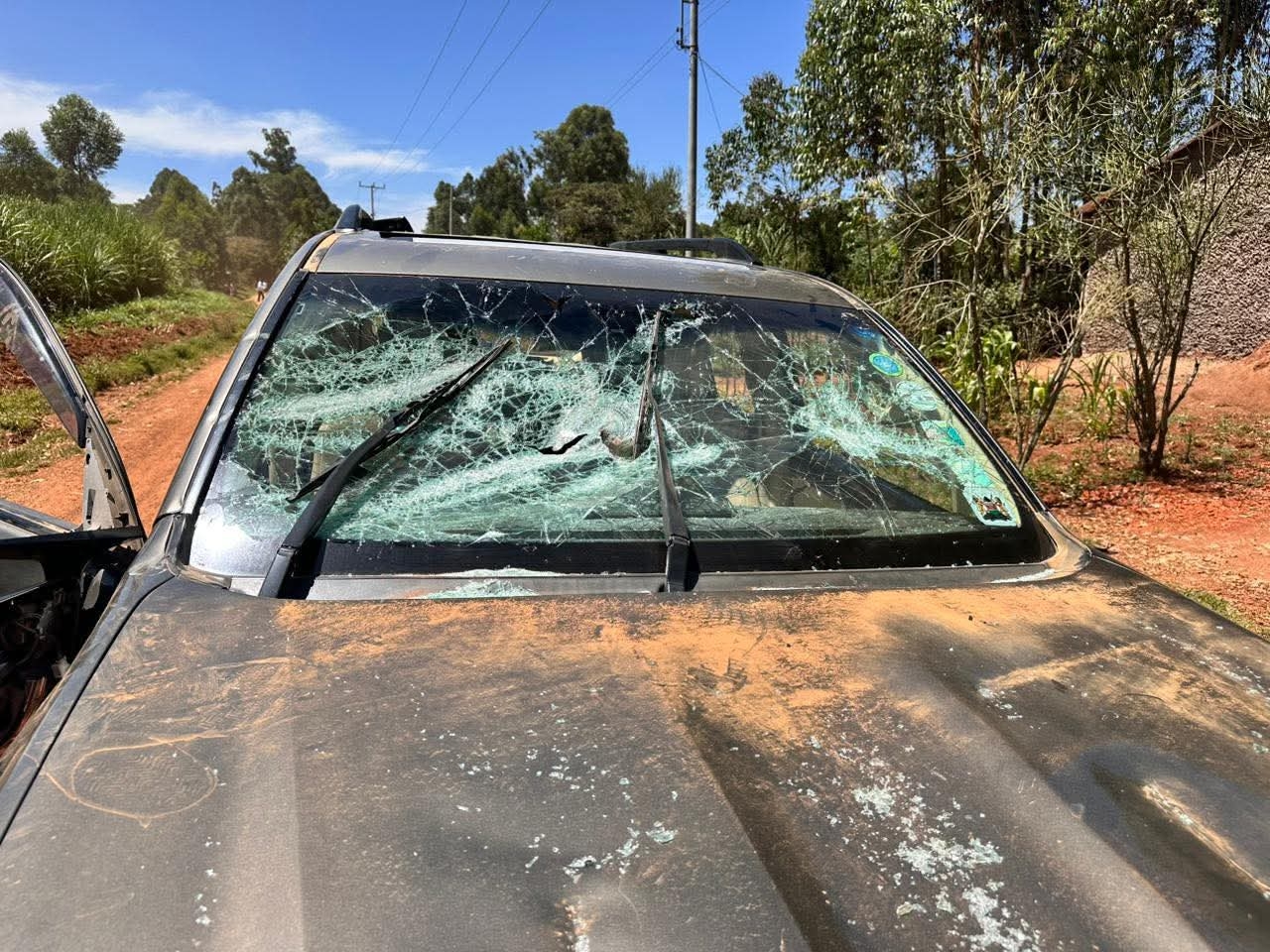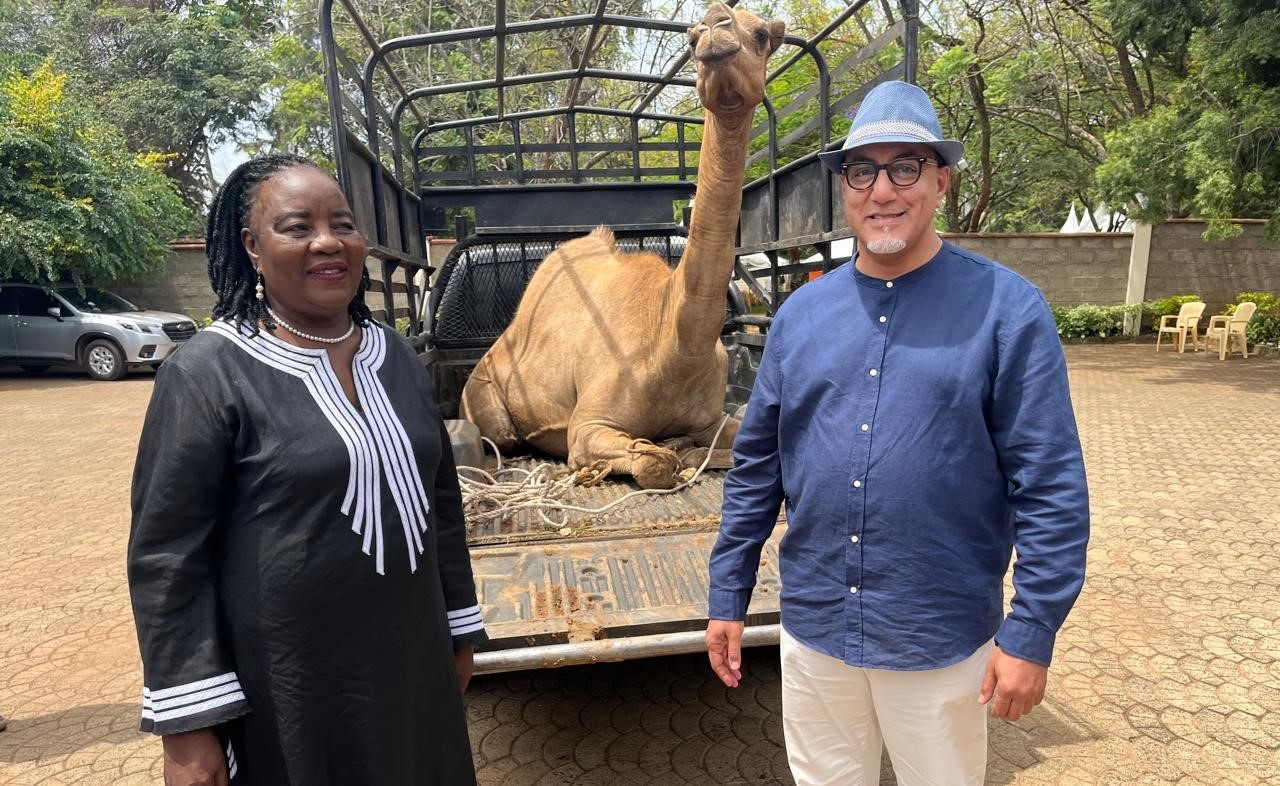Traders in Kiambu county have taken up the role of ensuring food safety and maintaining cleanliness in their market.
Nancy Wanjiru, a long-time trader at Makadara open-air market in Thika sub-county, has been at the forefront of this initiative.
For over 20 years, Wanjiru has sold various produce, starting with Irish potatoes and later including green peas.
Makadara market, located in Thika town, is approximately 42 kilometres from Nairobi.
Wanjiru has benefited significantly from training provided by the Global Alliance for Improved Nutrition and the county government on proper food handling to ensure safety.
Gain, a Swiss-based foundation, aims to reduce malnutrition by promoting healthier diets.
The 47-year-old mother of three explained that before the training, she would place her Irish potatoes or peas directly on the ground.
“But after the training, I always make sure I display my produce on a raised area to avoid food contamination,” Wanjiru said.
She also emphasised the importance of personal hygiene and keeping her stand clean.
James Mbugua, the secretary of Makadara market, confirmed that traders have been trained in cleanliness and good governance.
Thanks to this training, traders have taken the lead in ensuring their stands and surroundings are clean.
“We have also been provided with dustbins within the market to avoid littering. We have seen the benefits of keeping our market clean. Our customers are happy because they are guaranteed that the produce they buy from us is clean and safe for consumption,” Mbugua said.
To keep the market running smoothly and clean, the traders have organised themselves into groups based on the types of produce they sell.
“For example, we have a chairman who handles and leads other traders in the cabbage value chain, as well as those selling beans, onions, vegetables, and more,” he said.
He appealed to the county government to provide cold rooms for traders to store their produce.
Pauline Kagiri, a trade officer in Thika sub-county, explained that the market operates daily, with peak days on Tuesdays and Fridays.
The market serves approximately 3,000 consumers on market days and 2,000 on non-market days, attended by about 2,000 vendors on market days and 1,400 on non-market days.
Kagiri highlighted their collaboration with Gain to improve food safety at the market, including training.
“The traders have also been taught to trace the origin of the commodities they sell to ensure they do not offer contaminated items,” she said.
This includes tracing vehicles transporting food and maintaining good hygiene practices.
Gain has also provided dustbins throughout the market, and the government ensures regular garbage collection.
Kagiri urged the government and partners to provide more training for traders on handling fresh commodities, emphasising the importance of maintaining the freshness and safety of sensitive items like tomatoes and cabbages.
As Kiambu county continues to improve its food safety measures, the collaboration between traders, government agencies, and organisations like Gain is crucial in ensuring a safe and healthy food supply for the community.
“In the face of an ever-globalising food supply chain, we confront new and complex challenges. The very food that sustains life can, under certain circumstances, threaten it,"Kenya Bureau of Standards MD Esther Ngari said.
"Today, more than 1 in 10 people fall sick each year from foodborne illnesses, and 420,000 people tragically lose their lives. Children under 5 years of age bear 40% of the foodborne disease burden, resulting in 125,000 deaths annually.”
These startling numbers highlight the gravity of our every step in food safety, Ngari added, saying it is time to turn insight into impact.
“This urgency cannot be overstated. Food safety is no longer a choice; it's a necessity or perhaps even a right. Our mission is clear: safety must permeate every link in the food chain. From farm to fork, safety must be the norm," she said.
"Every stakeholder has a duty to understand and apply good food safety practices. Produce it safely, process it safely, transport it safely. Market it safely, store it safely, cook it safely. Even in eating, safety must be the prime consideration. It's on us to make every bite a safe delight.”
Kipng’eno Mutai, Gain Project Coordinator in Kiambu, detailed several projects undertaken in partnership with the county, such as Keeping Food Markets Working (KFMW), Resilient Markets and Vegetables for All, with the latter aimed at encouraging increased vegetable consumption.
“We have built the capacity of the market committee in Makadara market to ensure a safe environment where safe food can be found,” Mutai said.
Gain has also supported various market improvements, including installing cabros to reduce mud during the rainy season and providing a 10,000-litre water tank for sanitation purposes.
He highlighted the importance of ensuring food safety and resilience, particularly in light of challenges like economic hardships and unexpected events.
This year's World Food Safety day bears the theme 'Food safety: Prepare for the Unexpected', which resonates with what Gain has been doing.
The World Health Organization said the theme focuses on the significance of being ready for food safety incidents, regardless of their severity.
Mutai said Gain's project during the Covid-19 pandemic, Keeping Food Markets Working, helped traders access and maintain safe food commodities despite market closures.
Prof Hamadi Boga, Agra Vice President for Programme Delivery, urged consumers to be mindful of the quality and source of their food.
Boga highlighted the importance of a robust system where every actor, from producers to regulators, takes responsibility for maintaining food safety.
“We should take note of the importance of risk assessment in food safety. It’s about knowing the risks in food and having systems to manage those risks,” he said.
Boga called for government standards to be based on science, saying the primary responsibility for applying these standards lies with food business operators.
He urged policymakers to pass the Food and Feed Safety Bill, which is currently at the Senate.
“The Bill will help coordinate the sector better and really define the mandates for the different competent authorities. Agra has always supported the government of Kenya and its policymaking process. We were instrumental also in supporting the development of that bill and taking it through the stakeholder consultation.
“We are keen to make sure that the Bill is delivered and that we have a system of managing food safety where everybody knows their role and is able to play by the rules that have been set in that law,” he concluded.
Rebecca Amukhoye, CEO of the Micro Enterprises Support Programme Trust highlighted the importance of food safety for public health, economic development and food security.
She said MESPT is focusing on strengthening farmers' skills and enhancing food safety monitoring and enforcement.













![[PHOTOS] Ole Ntutu’s son weds in stylish red-themed wedding](/_next/image?url=https%3A%2F%2Fcdn.radioafrica.digital%2Fimage%2F2025%2F11%2Ff0a5154e-67fd-4594-9d5d-6196bf96ed79.jpeg&w=3840&q=100)



